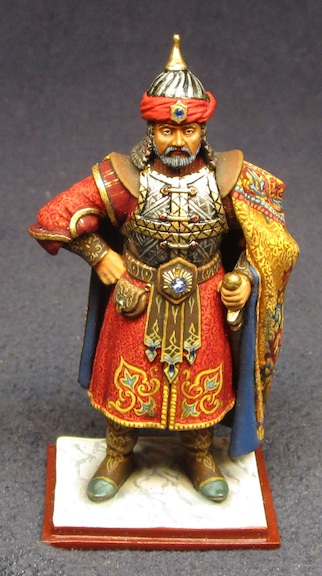Mamluk Sultan Baybars


As their skill and power grew these warriors left administration to Islamic functionaries and concentrated first and foremost on expanding their territories. Their greatest leader Sultan Baybars solidified control of Syria defeating the crusaders and set up Egypt as the hub of their conquered empire.
Born in Mongol Russia in 1223, Baybars was kidnapped and eventually sold to the Ayyubid sultan to be trained as a Mamluk. He directed the systematic expansion of the Mamluk empire, using both military and diplomatic means. He drove the Persian Ilkhanate Mongols back across the Euphrates river, while his ambassadors cemented an alliance with the Golden Horde Mongols as leverage against their rival cousins in Baghdad. He unleashed an unrelenting and ruthless campaign to capture Christian towns as he negotiated with the restored Byzantine Emperor Michael Paleologus, to isolate these remaining Outremer communities.
Not just a military ruler, Baybars promoted the economic well-being of his kingdom by establishing commercial treaties with Charles of Anjou, the king of Sicily, Jaime of Aragon, and Alfonso of Seville. He rebuilt fortifications, shipyards, and mosques. To ensure his realm's security, he built roads and bridges linking his various garrisons.
He died in 1277 when a plot to poison an upstart rival, Malik Kaher, backfired. His intended victim switched glasses and Baybars took thirteen days to die a slow, excruciating death.



 Up
Up